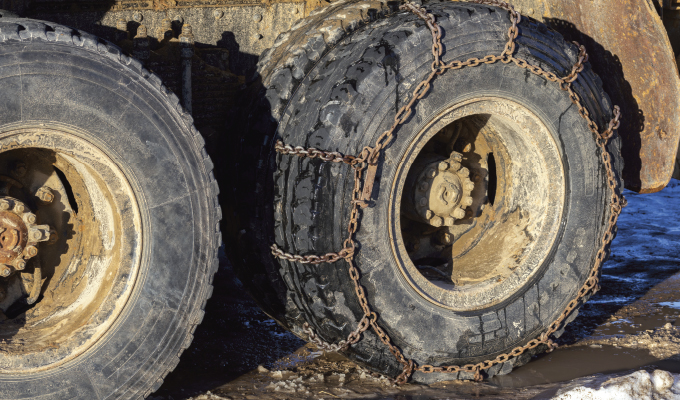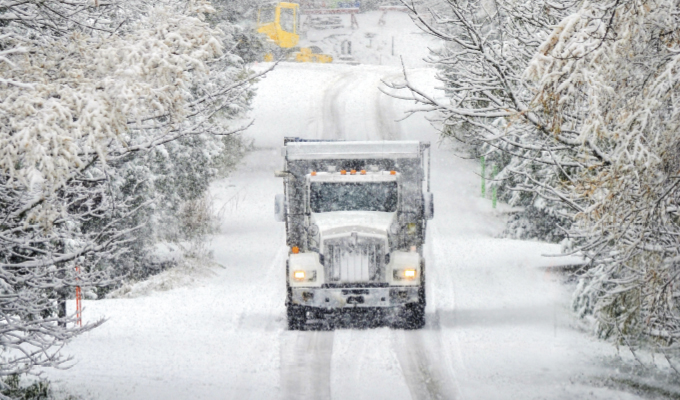A new year has started, and for many, that means the coldest months of the winter are still ahead. Even though many fleet owners have likely already experienced frosts and snow, the time is now to prevent further damage to fleet vehicles. Last month’s issue featured the vice president of operations and technicians from Cox Mobility. This month we’re back with more insight from the experts at Cox Automotive Mobility Fleet Services on why winter maintenance is so important. Read below for more from Drew Kortyna, senior director of commercial operations for Cox Automotive Mobility Fleet Services.
WHY IS FLEET MAINTENANCE HIGHLIGHTED DURING COLDER MONTHS?
KORTYNA: As soon as the cool temperatures roll in, maintenance becomes essential for fleet safety and efficiency. Every year, the first cold spell creates some of the biggest maintenance issues across the country causing more crashes during the first snow than the rest of the season. While year-round maintenance is also important, if something fails during cold months and a driver gets stranded, it could be a life-or-death situation.
HOW SOON SHOULD FLEETS PERFORM WINTER MAINTENANCE ON THEIR FLEET?
KORTYNA: It is recommended to prepare fleets for the winter months ahead of time. Implementing preventive maintenance measures before the winter begins will help decrease downtime and keep drivers safe. Preparing in advance will give fleets and drivers peace of mind while they’re on icy and wet roads.
WHY IS IT IMPORTANT TO ADD ANTI-GEL IN A FLEET MAINTENANCE ROUTINE?
KORTYNA: Adding anti-gel to fuel during the winter months is important because it keeps diesel fuel from gelling up. Anti-gel drops the freezing point of the fuel, which makes it less likely to freeze in colder temperatures and makes sure engines don’t have trouble starting. Additionally, good-quality gel helps keep the fuel tank about halfway full to avoid any extra moisture in the tank that can also lead to freezing up.
ARE THERE ANY STEPS FLEETS CAN TAKE TO IMPROVE THEIR BRAKE PERFORMANCE IN WINTER MONTHS?
KORTYNA: Brakes freezing up can be dangerous for the safety of the driver and others on the road. The brake system on a truck is operated by air, so properly draining the moisture from the air system attached to the brakes is vital to keep the brakes from freezing. If this step is ignored, the braking function of the vehicle has a high risk of being disrupted.

HOW OFTEN SHOULD TIRES BE INSPECTED DURING THE WINTER? WHAT SHOULD THIS CHECK ENTAIL?
KORTYNA: Tires should be inspected daily during the winter months, which can be easily forgotten. As the ambient temperature decreases, the pressure of tires also decreases, which leaves the tires at risk of popping or becoming flat. Reduced tire pressure is the number one reason for tire failures. This can be dangerous in cold temperatures, even life threatening, if roadside assistance is not immediately available.
ARE THERE ANY OTHER PROCESSES/MAINTENANCE THAT SHOULD BE PRIORITIZED DURING THE WINTER MONTHS?
KORTYNA: There are a few things that should be prioritized during the winter months such as using a de-icing windshield washer fluid. And making sure you read the degree range on the fluid bottle that pertains to your climate. If you live in a typically warmer city year round, your local store may not carry the right kind of fluid for colder months.
Drivers should also make sure the wiper system itself is working properly to allow for clear vision, which is also vital for safety in the snowy and rainy weather. Another tip is to use block heaters when parking trucks that allow the vehicle to stay warm. These heaters ensure that the vehicle does not reach a certain temperature that would increase the chances of its systems freezing up.
Additionally, testing your batteries and charging system in advance of the cold weather is very important because the cold weather takes a toll on the electrical system. Simple things like inspecting belts and making sure they are not worn are important, too, as they tend to break more frequently in the cold temperatures. Finally, checking wire connections should also be top of mind. When you get salt and snow flying up underneath the vehicles, insecure and failed connections become a concern.
WHAT ARE SOME COMMON MISTAKES PEOPLE SHOULD AVOID WHEN CARING FOR VEHICLES IN THE WINTER?
KORTYNA: Common mistakes include failure to put tire chains on the vehicle, which is common for trucking companies that do not haul out West. If these trucks take a winter load out West, it becomes a safety issue, and it is also illegal to drive on certain roads without chains. Other common mistakes include operating a vehicle with less than half a tank of fuel. This is once again to avoid moisture from building up in the tank, which leads to higher risk of freezing. A lot of big accidents that happen with trucks are often in the winter months, and this can become a very dangerous environment for maintenance professionals who travel to the scene for servicing.
WHAT DO YOU SEE CHANGING FOR MAINTENANCE WITH EVs ON THE RISE?
KORTYNA: With EVs, you won’t have to deal with the oil in tanks freezing up. Additionally, there will be no reason to buy gel because, again, the vehicle would no longer require it. However, draining the air system for moisture and using the proper windshield wiper fluid will still be relevant for EVs.
For More Information
Drew Kortyna is the senior director of commercial operations for Cox Automotive Mobility Fleet Services. Prior to joining Cox, Kortyna worked for TravelCenters of America, Inc., for more than two decades, helping lead the company’s retail pricing strategies and growth of the company’s mobile maintenance operations. Find out more, visit www.coxautoinc.com.





